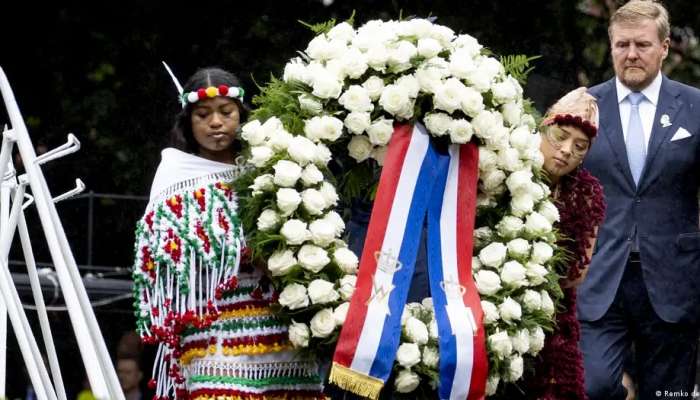
Amsterdam: Dutch King Willem-Alexander has apologised for his country's historic involvement in slavery and its ongoing repercussions, as the Netherlands on Saturday begins an official event to mark 150 years since the end of slavery in Dutch colonies.
The king issued his apology during a speech marking the event.
"Today I'm standing here in front of you as your king and as part of the government. Today I am apologising myself," Willem-Alexander said. "And I feel the weight of the words in my heart and my soul."
The king commissioned a study into the exact role the Dutch royal family, the House of Orange-Nassau, played in slavery in the Netherlands.
He asked for forgiveness "for the clear failure to act in the face of this crime against humanity."
Thousands of descendants from the former Dutch colony of Suriname and the Dutch overseas territories of Aruba, Bonaire and Curacao are attending celebrations in Amsterdam.
The event has been dubbed "Keti Koti," meaning "breaking chains" in Sranan Togo, a Creole language spoken in Suriname.
Queen Maxina and Prime Minister Mark Rutte are also expected to attend Keti Koti commemorations.
Activists had called for the king to apologize for the institution of slavery during his speech.
"That is important, especially because the Afro-Dutch community considers it important," Linda Nooitmeer, chairman of the National Institute of Dutch Slavery History and Legacy, told the NOS public broadcaster. "It is important for processing the history of slavery."
Last December, Rutte apologised for slavery on behalf of the Dutch government.
A number of Dutch cities, including Amsterdam, issued their own apologies before the prime minister did so.
600,000 people transported in Dutch slave trade
Beginning in the 17th Century, the Netherlands grew into one of Europe's major colonial powers and was responsible for about 5% of the trans-Atlantic slave trade.
Some 600,000 slaves were transported from Africa to colonies in the Americas, and many Javanese and Balinese people were enslaved and taken to South Africa under Dutch colonial rule.
The Netherlands officially abolished slavery on July 1, 1863. However, slaves continued working on plantations in the Dutch Caribbean for another decade before abolition was put into practice.